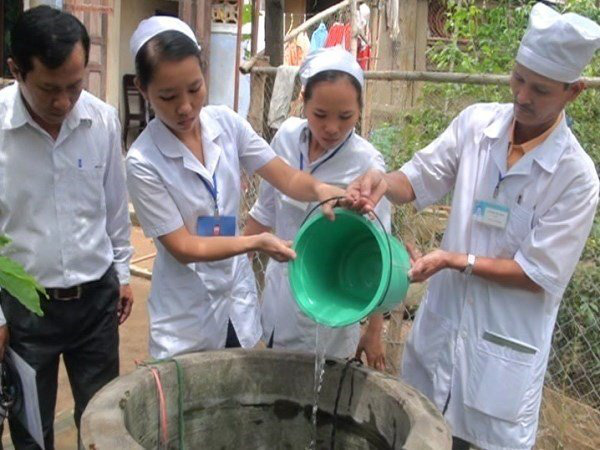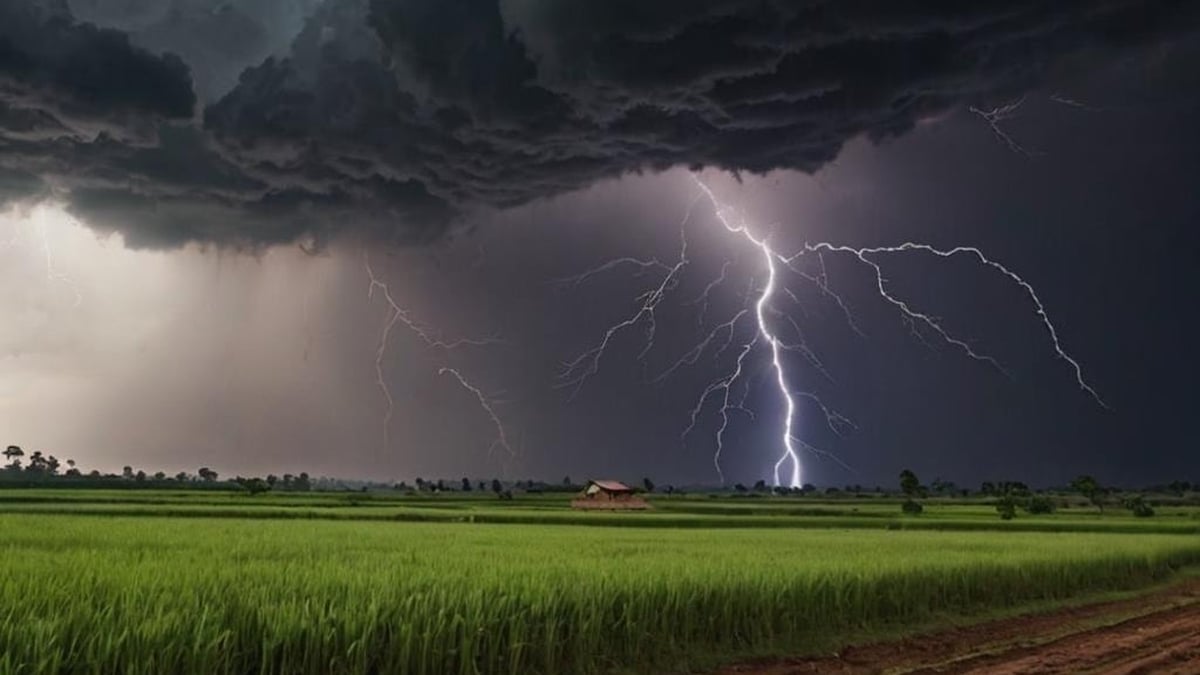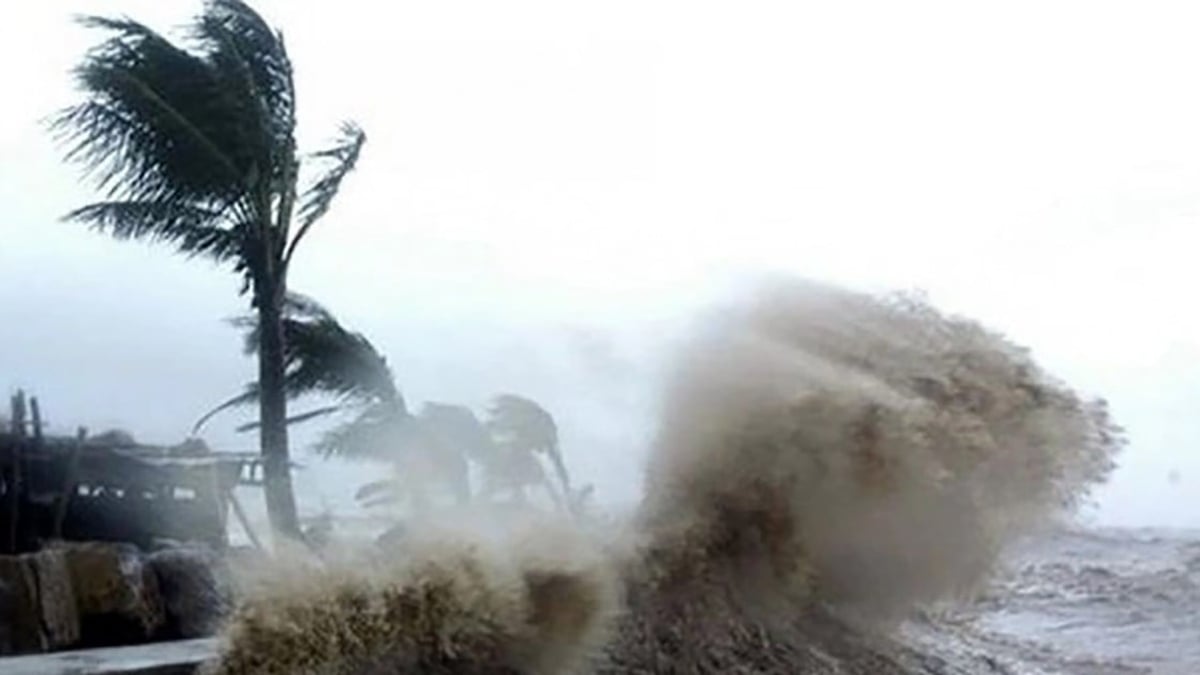
Having a clean water source is extremely important after floods to prevent the spread of disease - Photo: TTO Document
As Tuoi Tre Online reports: When storms and floods occur, they cause environmental pollution, allowing viruses and bacteria to arise and develop, leading to an increase in infectious diseases.
After the article: After storms and floods, there is a risk of disease outbreaks, how can people prevent it? many readers continue to wish for more suggestions to better care for people's health.
Reader Thu Thuy commented: "The local government and health sector need to pay attention to the problem of post-storm and flood epidemics for the people. Otherwise, the people will continue to suffer more losses. Health damage is still the most worrying damage."
To add more perspective, below is the sharing of Master Pham Thanh Binh - Military Hospital 175 about issues such as infectious diseases that can be caused by floods and some health advice after people return home.
Risk of infectious diseases, prevention
Floods increase the risk of outbreaks of many infectious diseases. The greatest risk comes from disease-causing microorganisms in contaminated water sources, commonly found in diarrhea, cholera, dysentery, and typhoid.
After floods, the destroyed living environment also causes microorganisms to multiply rapidly, easily causing intestinal diseases and transmission through contact and daily food.
Consuming raw and cold foods is convenient, further increasing the risk of infection. Therefore, preventing intestinal diseases has become one of the top priorities in epidemic prevention after natural disasters.
Therefore, people should not eat raw, cold, or refrigerated foods and should not drink untreated or untested water.
Doctors also note that water from wells and streams, even if clear and clean, should not be consumed directly because it may contain bacteria. Drinking water should only be used after being tested and disinfected for safety.
Food should be thoroughly cooked and stored in a clean place. Avoid eating raw, undercooked or unknown food to avoid the risk of infection from contaminated food.
To limit the risk of outbreaks, it is necessary to focus on closely monitoring and supervising symptoms related to intestinal diseases, including: fever, diarrhea, vomiting, jaundice, conjunctivitis.
Medical facilities need to resume operations as soon as possible to receive and treat patients, and quickly detect and handle suspected outbreaks.
Restore clean water system, house sanitation
Clean water is critical after floods to prevent the spread of disease. Restoring clean water systems and treating contamination must be a priority to ensure safe water for people.
Floods have damaged many self-sufficient well systems in mountainous areas, seriously polluting water sources. Authorities are repairing and disinfecting wells and checking their safety before allowing them to be used.
However, this recovery process will take time, so people in temporarily affected areas need to be provided with clean water from bottled water sources and mobile water stations.
When people return home after the flood recedes, it is important to clean and disinfect the living environment. Ventilation should be opened, mud, stagnant water and waste should be removed, and contaminated areas should be disinfected.
Food in the refrigerator that has spoiled due to a long power outage and vegetables soaked in water should be discarded immediately to avoid poisoning.
During the cleaning process, people need to wear gloves, take protective measures and maintain personal hygiene.
Avoid eating food that has come into contact with floodwater and always wash your hands before eating.
Advice from the doctor
People living in areas affected by storms and floods should pay attention to their health. If symptoms such as fever, diarrhea, vomiting, rash and other symptoms appear, they should quickly go to the nearest medical facility for timely diagnosis and treatment.
Please inform your doctor of your contact history and diet in detail to help your doctor determine your risk of infectious diseases.
In the post-flood period, people's bodies are susceptible to immune deficiency due to poor living conditions, humid environments, and difficult-to-maintain hygiene habits.
Therefore, maintaining personal hygiene, following a reasonable schedule and ensuring health are essential. People need to be highly vigilant and follow the instructions of health authorities to overcome this difficult period and rebuild their lives after the disaster.
With the spirit of cooperation and awareness of health protection, I hope everyone will soon stabilize their lives. Let's overcome difficulties together!
Source: https://tuoitre.vn/ban-doc-hoi-sau-lu-hay-gap-nhung-benh-truyen-nhiem-nao-cach-trach-20240913092849006.htm








![[Video] More than 100 universities announce tuition fees for the 2025–2026 academic year](https://vphoto.vietnam.vn/thumb/1200x675/vietnam/resource/IMAGE/2025/7/18/7eacdc721552429494cf919b3a65b42e)




















































































![[Infographic] In 2025, 47 products will achieve national OCOP](https://vphoto.vietnam.vn/thumb/402x226/vietnam/resource/IMAGE/2025/7/16/5d672398b0744db3ab920e05db8e5b7d)





Comment (0)